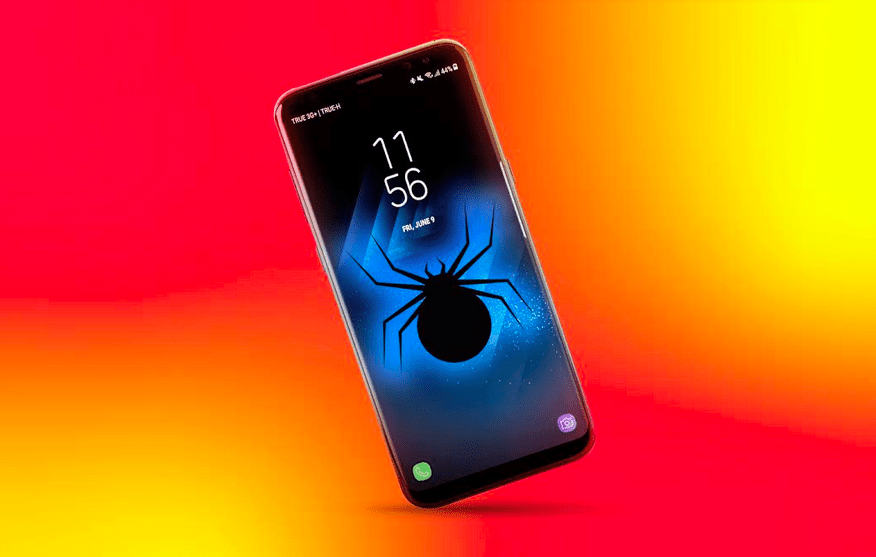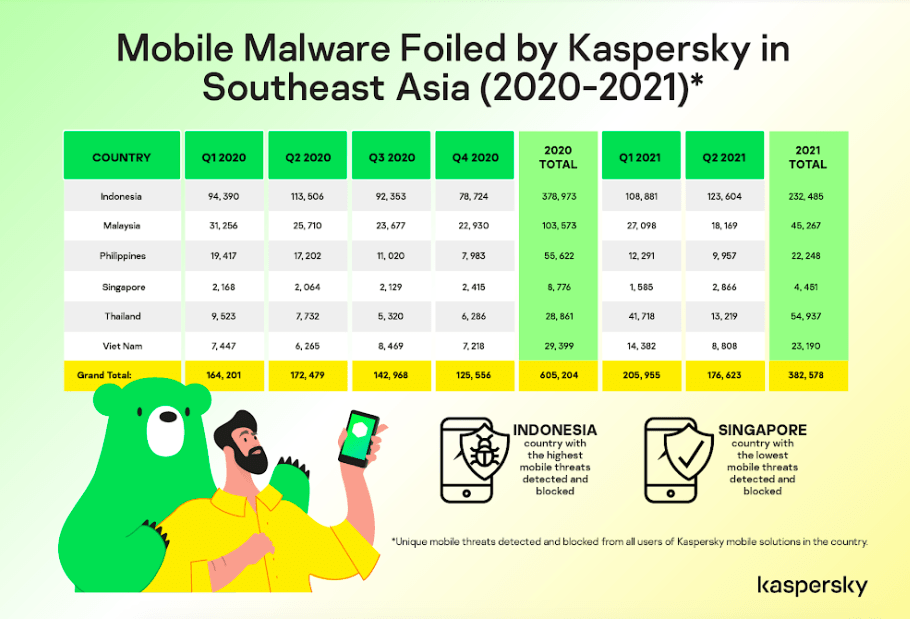AsiaTechDaily – Asia's Leading Tech and Startup Media Platform

Indonesia tops number of foiled mobile attacks in Southeast Asia: Kaspersky
Indonesia logged the highest number of foiled mobile attacks in Southeast Asia from January 2020 to June 2021, according to global cybersecurity and digital privacy company Kaspersky.
Kaspersky said it foiled 611,458 incidents of mobile malware in Indonesia from the first quarter of 2020 to the second quarter of this year. Malaysia and Thailand followed during the said period.
In the second quarter of this year alone, Indonesia also ranked 3rd in terms of mobile malware detected worldwide. Russia and Ukraine took the first and second spots while India and Turkey landed in fourth and fifth.
In terms of the percentage of users attacked by mobile malware, 4.42% users in Malaysia were targeted during the first half of the year, followed by Thailand (4.26%) and Indonesia (2.95%). Singapore is quite close with 2.83% of mobile users almost infected by this type of threat. The Philippines (2.27%) and Vietnam (1.13%) logged the lowest percent during this period.

Kaspersky said it has detected and blocked 382,578 mobile attacks against users in Southeast Asia during the first half of 2021. This is a 14% increase compared with the same period last year with 336,680 incidents. The mobile attacks detected and blocked cover the general Kaspersky users from the region.
A survey done by Kaspersky last year revealed that a little more than two-thirds of respondents are using a personal device to work from home. Aside from this, employees are also using their work gadgets for personal activities such as watching video and educational content, reading news, and playing video games.
Most interestingly, 33% of the 6,017 employees surveyed worldwide last year admitted to using their office devices to watch adult content, a type of content that is often targeted by cybercriminals.
Laptops are the main workhorse but mobile devices have also been used to access office emails and work-related systems even before the pandemic.
“It is a risky but a known practice that these same handsets are also being utilized for personal tasks and accessing guilty pleasures. With this trend being more rampant in a virtual home office, companies should revisit their policies, access rights, and security set-up to block cybercriminals from entering their enterprise network through infected smartphones,” said Yeo Siang Tiong, General Manager for Southeast Asia at Kaspersky.





